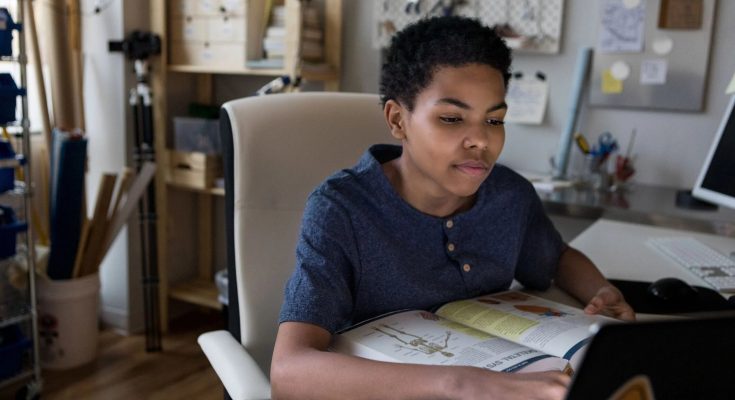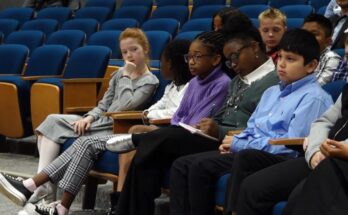COVID-19 has done more than cause a health pandemic, economic scare and new adaptation to our social norms. It has also uncovered the unreasonable and unrealistic ideals we have for children and parents matriculating through the public education system.
The educational system needs to be reformed drastically. COVID-19 has shown us that education is not exempt from racial and socioeconomic inequalities. We are expecting children in K-12 to actively work online Monday – Friday, at home, away from teachers and in the proximity of their parents who may or may not be available, while many adults are themselves struggling to work from home under the new pressures of social distancing and stay-home orders.
Many of my students are still developing ideas about the world, racism and reality, fake news and true research and most important, socialization and human development. Yet, we expect students to be responsible enough to sit in front of a computer and complete assignments. Many times without adult supervision.
COVID-19 revealed that our education system needs grave improvements to manage virtual learning for students struggling with literacy.
We are expecting children to use their screens for learning. The same screen that gives them access to social media, YouTube, games and many other applications and sites. Online learning isn’t as easy as we think!
We label our students as the iGen/technology generation without considering the importance of basic foundational skills that we obtained through socialization at school. If students are several grade-levels behind in reading, we should anticipate them needing even more support when learning to read virtually.
We constantly discuss the huge gaps in literacy and overlook the existence of literature in the world of tech. The expectation that students will comprehend instructions on their own through technology or a robot voiceover is problematic when students struggle with comprehending in classrooms. As teachers, we often repeat instructions and condense information in ways that online curriculums and voice-overs simply can’t!
Students need teachers; period! They don’t need babysitters or someone designated to oversee or watch them on a computer 5-6 hours a day. We cannot rely on automatically programmed systems to say the things that we would say without being able to sense whether the child is truly understanding the concept or not.
Please don’t misunderstand the message. Online learning isn’t easy, but it’s not impossible. It simply just won’t work without the social engagement, personal attention and interaction between teachers, students, and their peers.
We must support and empower teachers. We need to create effective and easy methods to manage teacher preparation and certification programs. Teachers need to make salaries that allow them to focus on building up the instructional needs of students without having to work two to three jobs to survive.
In addition to the things that we are providing to our scholars while schools are suspended from gathering in person, we have to create pathways for all children to be successful during this time. We can’t work to stabilize the economy without securing our investment in the future.
During school closures, creating innovative schedules for scholars is key. Integrating technology by using apps such as Google classroom, Zoom and Facebook Live are ways to lead classes, forums, debates and other things to keep students occupied.
Online learning and teaching itself are not easy; reach out to a teacher today and thank them for the work they do in teaching and learning.





